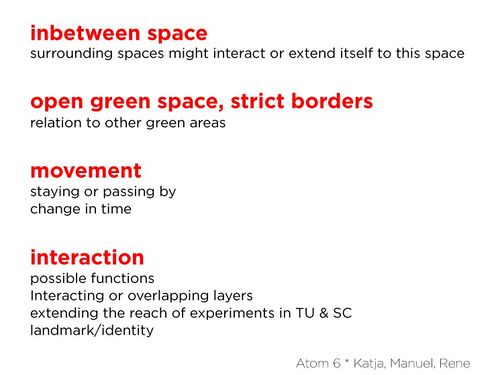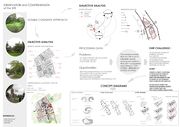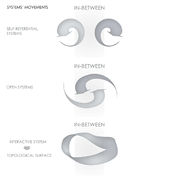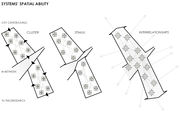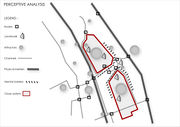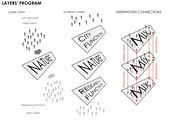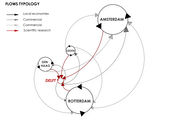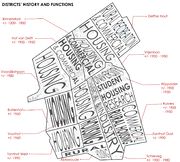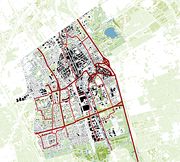atom06:Home
| Line 3: | Line 3: | ||
! !! rene brakels !! manuel Zucchi!! Katja Virta | ! !! rene brakels !! manuel Zucchi!! Katja Virta | ||
|- | |- | ||
| − | | from|| | + | | from|| The Netherlands|| cell|| cell |
|- | |- | ||
| − | | studied|| cell|| cell|| cell | + | | studied|| cell|| cell|| cell |
|- | |- | ||
| − | | work experience|| cell|| cell|| cell | + | | work experience|| cell|| cell|| cell |
|- | |- | ||
| − | | why hyperbody|| cell|| cell|| cell | + | | why hyperbody|| cell|| cell|| cell |
|} | |} | ||
Revision as of 11:31, 14 September 2011
| rene brakels | manuel Zucchi | Katja Virta | |
|---|---|---|---|
| from | The Netherlands | cell | cell |
| studied | cell | cell | cell |
| work experience | cell | cell | cell |
| why hyperbody | cell | cell | cell |
atom06
ABOUT us
Atom 6
René Brakels
from: The Netherlands
studied: The built environment at the Hogeschool van Arnhen en Nijmegen
architecture at the ARTEZ academy of architecture
architecture at TU Delft, schakelsemester, Bachelor 6, MSc 1 (dwelling studio)
work experience: STW architects (Dublin, Ireland)
Rietveld architects (New York, USA)
B+M architects and consultants (The Netherlands)
Mulderblauw architects (The Netherlands)
why hyperbody: Hyperbody intrigues me as it's a whole different attitude towards architecture and how to get there. The fancy modeling tools and futuristic looking buildings and their workings are something I really would like to get to know.
Manuel Zucchi from: Italy studied: work experience: why hyperbody:
Katja Virta
from: Finland
studied:
work experience:
why hyperbody:
ABOUT hyperbody
"Every design that architects create is a hypothesis, which can only be proven once the building is built. For immediate validation of design hypotheses, instead of constructing representations of to-be reality, we have to create architectural systems through experiential prototyping in physical and virtual space. Such prototypes are fully operational from day-1 of the design process. In this way the distinction between design and inhabitation of architecture blurs. In such process we take advantage of the principles of non-standard architecture and its special case - interactive architecture." - design studio brief
The idea is to make a non-standard architecture, a place that reacts, that breathes and interacts to and with the people that use it. Using software to make it possible to map analyses to help design the building in an optimal way, regarding sun or people movement, or any other variable.
some involved architects holding to these ideas are
pan architects [1]
architecture + design [2]
ONL Oosterhuis & Lénárd [3]
site analyses and concept forming ideas
ABOUT intent and challenges
Interview with desk member of the Science Center
- they only go through the park to go to the Ketelhuis
- in summer they lunch outside the building, not in the park
- they've never stayed in it
- the city council is already planning to make the road between Julianalaan and Mijnbouwstraat a 2-way street, and extending the park to the architecture department
- they have about 38.000 visitors a year (more information from Michael van der Meer, head of the Science Center)
- everything shown is T.U. related research, and experiments
- this is their first year of operation, and they do promote it, but are doing very well.
- there is a very broad and young support, mostly secondary school students interested in science
- the T.U. shop and information center moved from the Aula to the S.C.
- many T.U. meetings (staff and students) are held there because of good meeting rooms facilities
- the Science Center has plans to expand to the north
- the road (Mijnbouwstraat) is a too wide very dangerous road for children to cross, it is a big barrier with proper crossing
a man in the park - Harry Koerts
- he's there 3x a day, he sees about 5 people in the morning and afternoon, playing with their kids or walking their dog (there is a bent sign that says no dogs allowed, but nobody cares, and the people who are supposed to check it, parking guards, are not there because it's free parking in the area)
- he likes the silence there, as he can block out the noise of the traffic as he can't see it and enjoy the green
- we need to reroute the traffic of Julianalaan to go behind the architecture department over Zuidplantsoen
- on a sunny day there are a lot of students on the lawn
- not many people that live in the area use the park
- but the student residences will probably see this park as their garden
- in the evening, the North benches are used by a group to go drinking, the N.E. bench is the lovers bench, the S.E. bench is an empty one, as it is not surrounded by shrubs. The south bench is "the private one" with a lot of thick vegetation around it where couples do 'their thing', and the west bench is where they deal drugs...
- the botanical gardens would like to use the park as an extension, a public feature garden, their business card, as an inviting entry into the TU area, but the traffic doesn't allow for a good connection between the two
- there is a problem connecting the people of Delft with the students, as they're in their own world
- The people are almost 'affraid' to go into a university building, not knowing it is allowed
- along with this, the image of students isn't the best one, and people don't know how to relate to them
- it requires a change of attitude of the people, and a more inviting attitude of the TU
- the faculties and students have parties and have things going on. The rest of the city is kinda dead, especially the park. - there is one cultural/community center behind central station for the entirety of Delft... That means that there are no cultural incentives in the area in which the park is located
- there are really 2 cultures, students - rest of Delft
- the thick green around the park is a good thing, it creates a barrier, gives privacy, and keeps the noise and business out of the park, creating a sort of haven 'inside', away from the traffic. On the other hand, it is not inviting to come into the park as it makes it hard to see what's going on (good or bad)
- there is a good amount of parking at the architecture faculty, so there is plenty of parking for events in the evening in the park should there ever be one...
- the trees provide shelter for people, and the green is something everybody needs, it gives a serenity in a city
- animals are also a viable part of the park, with plenty and a large variety of birds, cats and even rabbits
